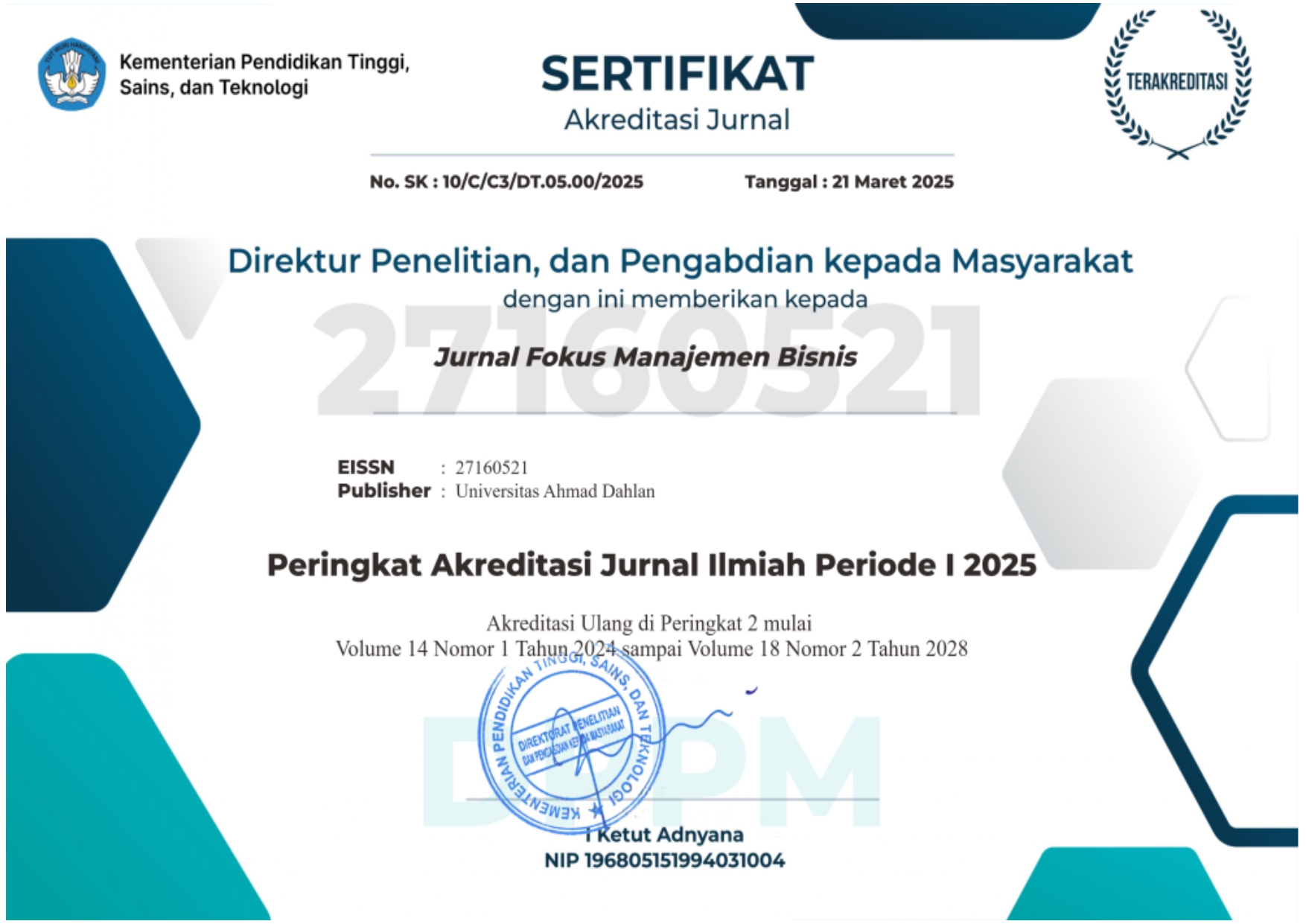ANALISIS PENGENDALIAN BAHAN BAKU MENGGUNAKAN METODE EOQ (ECONOMIC ORDER QUANTITY) (STUDI KASUS PADA PT MISAJA MITRA CO.LTD)
DOI:
https://doi.org/10.12928/fokus.v1i2.1310Keywords:
procurement of raw material, economic order quantity (EOQ), reorder point (ROP)Abstract
Research and results of the calculations carried out, when using the EOQ method in the procurement of raw material cost savings will be obtained. If the organization of the raw materials based on EOQ methods, there will be cost savings in 2008 amounted to Rp303.763.020,- in 2009 amounted Rp393.450.766,- the year 2010 amounted to Rp411.567.748,-. Thus, it means that there are very real differences between the policies conducted by Inventory Company with the calculation according to the EOQ.
From the results above, it can be concluded that the supply of raw materials each year has the difference of raw material inventory, the frequency of buying raw materials when using the EOQ method is 2 times in one period (1year), limit or point of ordering raw materials which is needed by the company when using the EOQ method of 2008 amounted to 9188.81 kg in 2009 amounted to 9869.47 kg and 2010 amounted to 11105.52 kg. Total cost of raw materials inventory, calculated according to the EOQ which is less than that released by the company, then there are cost savings when the company uses EOQ method in term of raw material inventory.Downloads
Published
How to Cite
Issue
Section
License
Authors who publish with this journal agree to the following terms:Â
- Authors retain copyright and grant the journal right of first publication with the work simultaneously licensed under a Creative Commons Attribution License that allows others to share the work with an acknowledgment of the work's authorship and initial publication in this journal.
- Authors are able to enter into separate, additional contractual arrangements for the non-exclusive distribution of the journal's published version of the work (e.g., post it to an institutional repository or publish it in a book), with an acknowledgment of its initial publication in this journal.
- Authors are permitted and encouraged to post their work online (e.g., in institutional repositories or on their website) prior to and during the submission process, as it can lead to productive exchanges, as well as earlier and greater citation of published work (See The Effect of Open Access).






